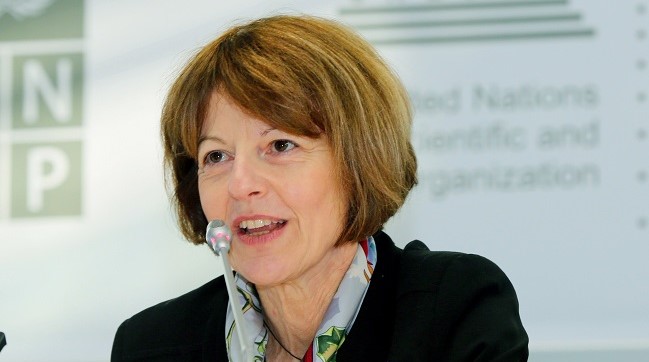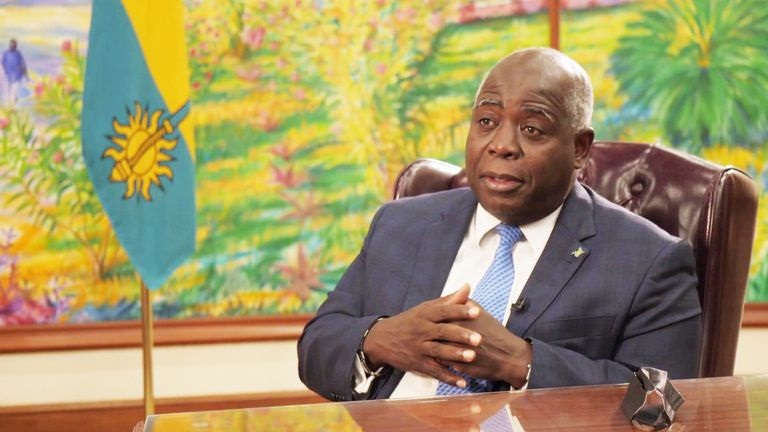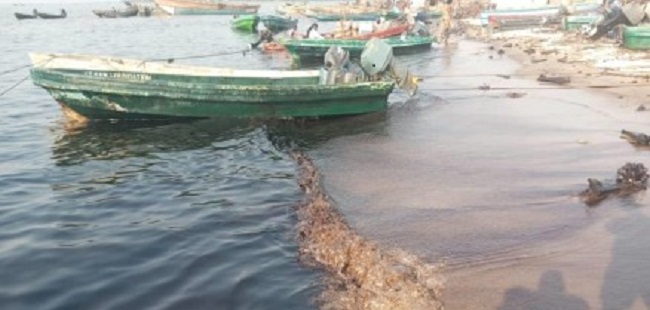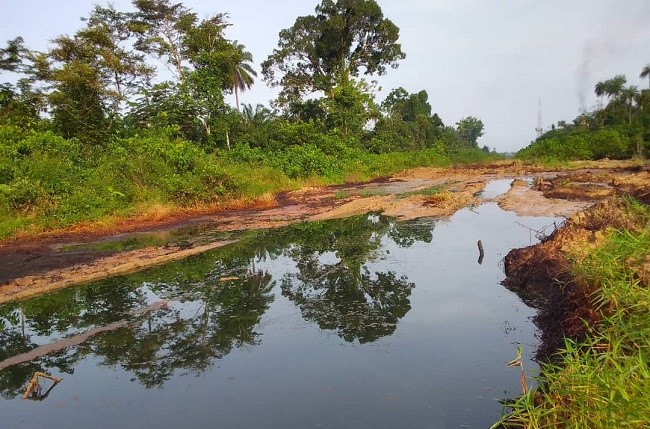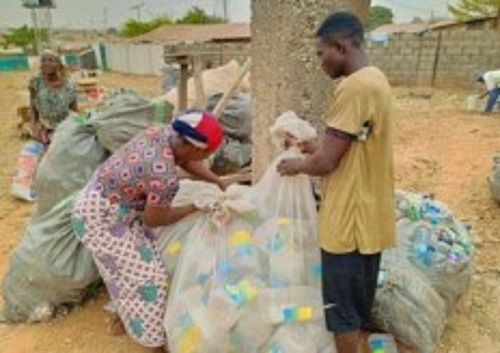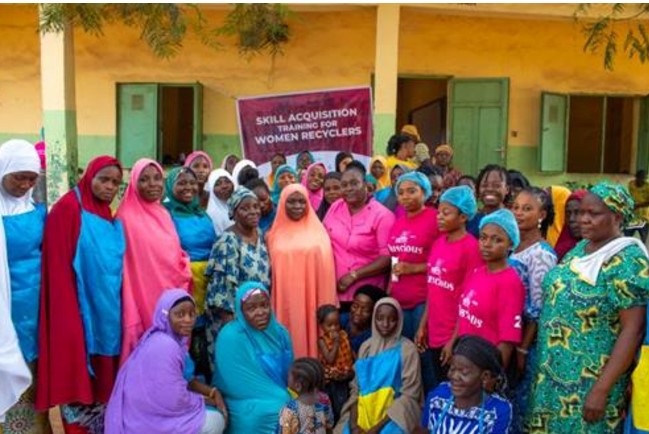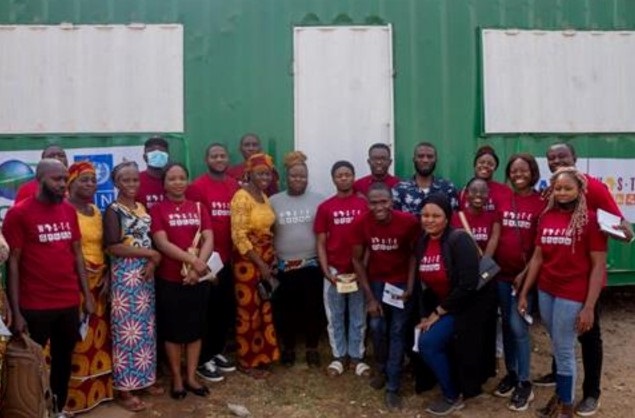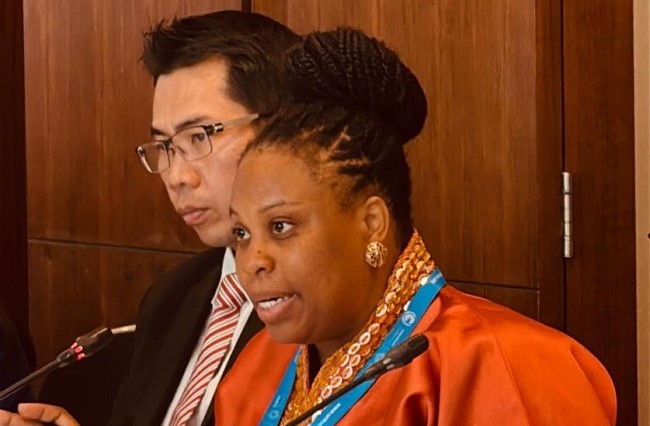The Elephant Protection Initiative Foundation friend of December 2024 is Stephanie Bourgeois, the Stockpile Management System technical focal point for the EPIF in Gabon, who has been working for the Gabon National Parks Agency for over 10 years. She coordinates a research programme on the forest elephant, a discreet and little-known species despite its imposing size. To better understand and protect these elephants, her team has developed an innovative approach that combines genetics, GPS collars, photographic and acoustic traps, as well as tracking carcasses and seizing ivory

Tell us a little about how you grew up and where your passion for wildlife was sparked off.
I grew up near Paris, in France, far from the wilderness. My first contact with wildlife came from the documentaries and magazines that made me dream as a child. Later, it was through travelling that I really discovered the richness of the great outdoors. At a very young age, I became aware of the threats to wildlife, particularly through striking images of elephants and rhinos mutilated for their ivory or horn. My passion for elephants began with the 1989 campaign against the ivory trade. For me, they are a symbol of hope and resilience, a reminder that we can still preserve a place for wildlife in a world dominated by human activity.
In your experience of working for wildlife conservation in Gabon, what has been the highlight of your career?
The highlight of my career was setting up the ANPN’s wildlife forensic genetics laboratory, which was inaugurated in 2021 after several years of hard work. This laboratory, a first in Central Africa, uses genetics as a key tool to support criminal investigations and prosecutions related to poaching. We are working with several countries in Africa and Asia to identify the geographical origin of major seizures of elephant ivory and pangolin scales, as DNA is the only technology capable of tracing the source. Thanks to the innovative genetic techniques we have developed for forest elephants, we have pushed back the boundaries of traceability: we can now make precise matches between seized ivory and poached elephant carcasses, providing solid evidence in the fight against ivory trafficking. These advances have also made it possible to carry out the first genetic census of elephants in Gabon, an essential step in their conservation.
Is there a story you can share that gives you hope for wildlife conservation?
I immediately think of memories of peaceful encounters with forest elephants in their natural habitat. The species faces many threats, and we know that to survive, it adapts its behavior, moving around open areas at night to avoid humans. However, in certain clearings, called baïs, where the elephants come to collect mineral salts, we are still lucky enough to observe them in the middle of the day. I particularly remember an encounter with a female elephant and her baby. Despite the arrival of our group of eight people in the clearing, in the middle of the day, she saw us but remained calm and continued to draw mineral salts, without showing any sign of fleeing.
As the SMS technical focal point for Gabon, what is your opinion on the role of technology in empowering wildlife conservation at the national level?
The development of technology plays a key role in wildlife conservation in Gabon. It enables data to be collected rigorously, centralised quickly in a national database, and managed transparently and efficiently, particularly for sensitive data such as ivory stocks. SMS, for example, has considerably improved our efficiency and transparency. We also use technologies such as GPS collars and camera traps on a national scale. These tools generate essential data for studying a discreet species like the forest elephant, while producing an unprecedented amount of information. This data, which is essential for evidence-based decision-making, would not otherwise have been available.
However, technology alone is not enough. Local managers need to be trained in its use to ensure that it is truly taken on board. Simple, accessible and intuitive tools are needed so that users can understand, manipulate and exploit the data effectively. For example, we have set up an automated reporting system, based on GPS collars, to track elephant movements and adapt our conservation strategies. In this way, technology should be seen as a means of supporting informed, participatory wildlife management. It promotes long-term planning and greater transparency and strengthens the confidence of partners and local communities.
The complex issue of maintaining biodiversity in Africa and protecting the remaining wild species remains a hot topic in conservation on the continent. As a wildlife professional, what do you think are the most practical solutions?
The issue of conserving elephants in Gabon and, more broadly, biodiversity in Africa, is indeed a complex one. Gabon’s elephant population appears to be stable according to the latest national census, but this should not blind us to the fact that some areas have been seriously affected by poaching and ivory trafficking. In addition, the increase in conflicts with local communities reflects the difficulty of coexisting with this species, which is still classified as Critically Endangered. It is crucial to maintain and intensify efforts to combat poaching and ivory trafficking, but this is not enough.
It is equally essential to promote sustainable coexistence between humans and elephants. This requires local initiatives to reduce conflict, such as the introduction of crop protection measures, as well as collaboration between all stakeholders to improve planning at a regional level. The involvement of local communities in the management of wildlife and natural resources is at the heart of conservation policies in Gabon.
Scientific research also plays a central role. By gaining a better understanding of elephant behaviour, population dynamics and the impact of human activities, we can design appropriate conservation measures. There is an urgent need to understand the causes and dynamics of human-wildlife conflicts through an interdisciplinary approach combining ecology and social sciences, to propose long-term solutions. An approach based on scientific data and results is essential for making informed decisions, to guarantee a sustainable future for our ecosystems.
Do you remain optimistic about the possibility of coexistence between man and wildlife in Africa?
I remain optimistic, because man and wildlife have coexisted harmoniously for thousands of years in Africa. However, this balance has been brutally and rapidly disrupted in recent decades, mainly because of poaching and increasing human pressure on habitats. It is therefore our responsibility to find a new model of coexistence that is beneficial to both wildlife and human communities.
This coexistence is not utopian. It is essential not only for the survival of species, but also for the future of generations to come. Wildlife plays a key role in ecosystems, particularly species such as the elephant, which acts as a forest engineer. This species is essential to the functioning of the forests of the Congo Basin, the second largest tropical forest in the world. These forests play a key role in the fight against climate change and contribute to the well-being of local populations in this sub-region. Protecting forest elephants therefore means preserving a common asset that benefits all humanity.
Finally, it is important to emphasise that conservation is not at odds with human development. Approaches based on scientific data and long-term planning can make it possible to reconcile economic development and wildlife conservation, provided that the close links between wildlife, its habitat and human populations are considered.

